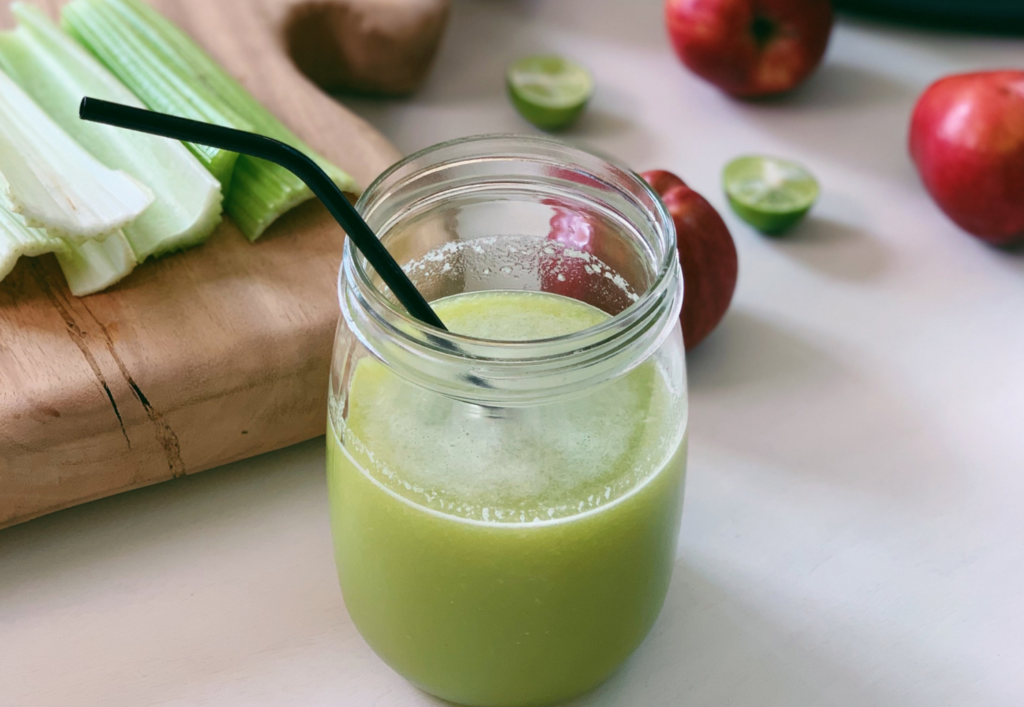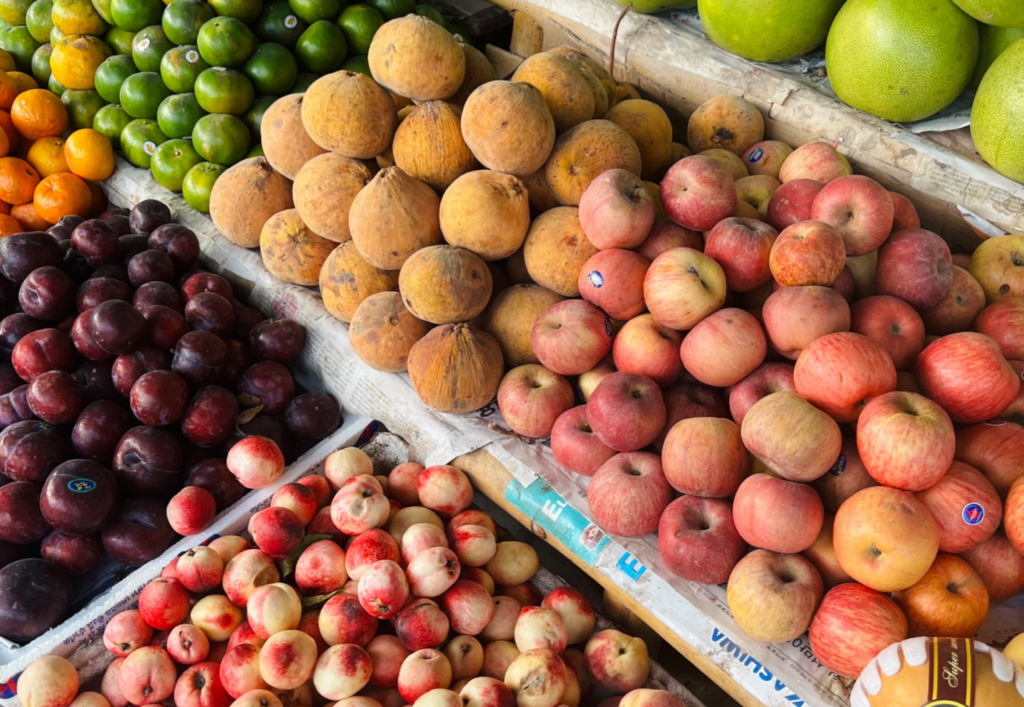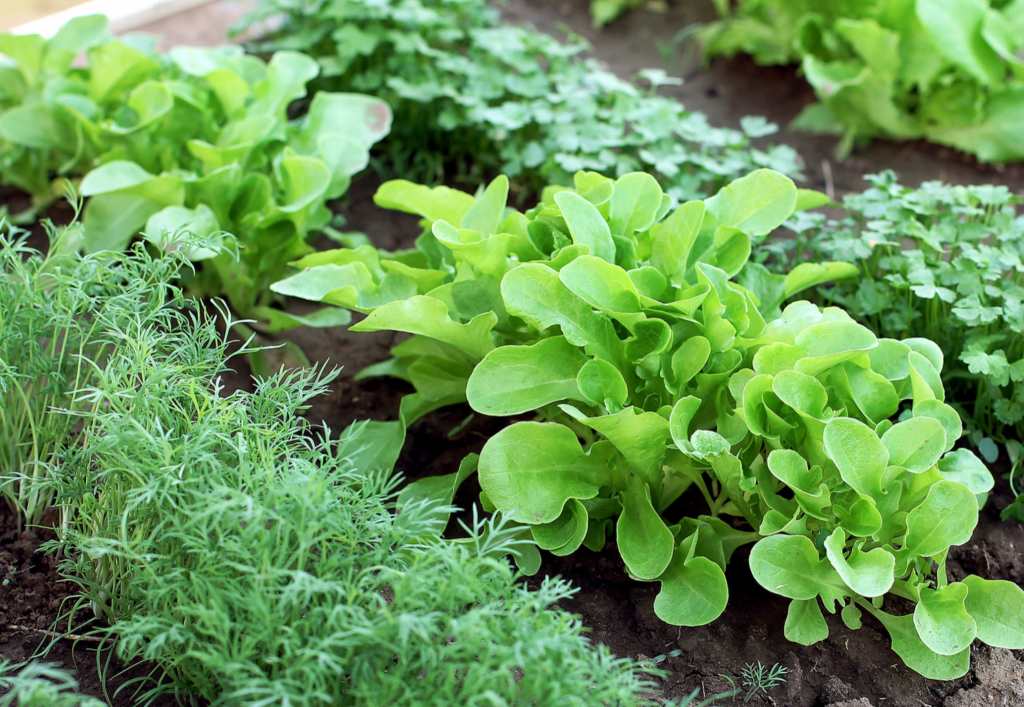Our struggles can lead to success, and the story I am about to share is proof of that. In some of my teenage years and most of my mid-twenties, I struggled with severe acne, which caused me self-doubt and many tears.
It has a positive side because it made me who I am today. It made me discover a passion in life and a new profession, which is why I do what I do now. I help people make better food choices and build healthy eating habits. One of the things I do, in particular, I help people transition to a plant-based diet to achieve their health goals.
How I discovered a plant-based diet
As a former esthetician trained in various skin treatments, I had access to the best skincare and skin specialists in the city. Imagine my frustration when nothing was helping me to clear my skin, including rounds of oral acne medication. Whatever I did, I always returned to the same result, which was a temporary relief.
But acne wasn’t the only symptom I was experiencing at that time. Severe stomach pains, along with eczema flares on my fingers, had become very consistent. Interestingly, not the health professionals nor I made the connection that all the symptoms were somehow related.
Accidently healling my gut by going meat-free
By chance, during the same period, I got introduced to veganism through a new friend I met. Even though our friendship didn’t last long, their passionate activism for animal rights significantly influenced me. I stopped eating meat and started exploring the world of pescetarian and vegetarian diets.
The very first effect on my body from the removal of animal foods like red meat and poultry was the absence of stomach cramps. Believe it or not, it has been over nine years since I stopped eating meat, and since then, I have not experienced such stomach pain.
But just not eating meat wasn’t enough to clear up my skin, as my diet was still rich in highly processed foods, dairy products and sugar. Even though I was still one of the fish eaters, my diet predominantly consisted of cheese, pasta and chocolate.
Doctors and dermatologists couldn’t give me the answer to what was causing my acne because my blood work was the norm. But my gynaecologist once told me that acne often disappears once you have a baby, which gave me a little hope!
Long story short, after having my son, my acne didn’t disappear but only worsened. In desperation, right after finishing breastfeeding, I went back on Isotretinoin pills, and after about three months, my skin broke into a terrible rash. This was when I decided to stop masking the symptoms and get to the root of the problem.
How a trendy online detox made me eat more plant foods

My postpartum began with an intense wave of anxiety and panic attacks. Even though I had an excellent support team, my fears and emotions were getting the best of me. At the same time, my husband was also going through a challenging period. He worked long hours, relying on processed food and energy drinks for fuel. It didn’t take long until he started to experience weight gain, which shot up his cholesterol levels, increasing his risk of heart disease.
As I was already learning about holistic practices for acne skin, I naturally started to be drawn to all things healthy diet and lifestyle. As a vegetarian mum, I made a decision to exclude meat from my son’s diet as much as possible, which pushed me to start learning about nutrition. I was on a mission to build a healthy lifestyle and improve my family’s health.
My husband’s diet was very rich in processed foods and animal products. He was a lover of cheese and steaks, so I was surprised when one day, he agreed to join me on a 28-day detox eating only plant-based foods.
The idea was to reduce high-fat foods, gluten, coffee and alcohol while replacing them with minimally processed plant-based foods and green juices. I got inspired by one of the popular holistic accounts on Instagram, which was full of happy testimonials from people with various health issues and even chronic diseases. I had a gut feeling that it was exactly what I needed.
During the detox, I learned how much I was addicted to dairy products. My diet was built on cheese and many other products that included dairy. I already knew that there was a possibility that dairy triggered my acne. Still, I never had enough will to eliminate it from my diet to see if it would make any difference. The detox was a perfect opportunity, and it has become a turning point for me to go entirely plant-based.
Transitioning to plant-based eating
The results after a month of alcohol, coffee and gluten-free whole food plant-based diet were fantastic! I had fewer breakouts, and the overall feeling was incredible. I noticed that I went through a month smoothly, without having any emotional outbreaks, bloating or pain.
My husband was surprised by how easy it was to go through the month without animal foods and noticed a significant improvement in his bowel movements and energy levels. Our diet consisted of green juices, smoothies, and amazing salads full of leafy greens, starchy vegetables, whole grains, fruit, beans, nuts and seeds. Eventually, after the detox, we started experimenting with tofu and learning about other “must-haves” of a vegan diet, like nutritional yeast.
That “detox” experiment was a great success because it taught me about the health benefits of plant-based diets and healthy cooking. The new significant changes in my skin’s appearance and well-being inspired me to dive deeper into plant-based nutrition and its effects on skin ageing and health.
My husband’s weight loss journey
When my husband started experimenting with plant-based diets, he was already considered obese. He experienced chronic stomach problems and was struggling with insomnia and brain fog. It took him about two years to slowly transition to plant-based eating, and with my guidance, he lost over 17 kgs without any strict dieting, just eating mostly plants.
My husband is a big lover of food, and for him, it was essential not to lose access to delicious meals. Learning how to make his plant-based meals tasty was a key in his weight loss journey. His favourite part was that he could still satisfy his sweet tooth while remaining in a calorie deficit. This was possible because plant foods generally contain fewer calories and are more satiating due to high amounts of dietary fiber.
Weight loss on a plant-based diet
Weight loss on a plant-based diet has many great health benefits, including reduced risk of heart disease and improved blood pressure and blood sugar levels. By replacing saturated fat from animal-based foods with healthy fats from plant foods, my husband’s LDL (low-density lipoprotein) cholesterol was reduced to healthy levels, potentially protecting him against cardiovascular disease.
Being overweight raises your risks for many diseases. Growing up, I watched my father develop type 2 diabetes because of his poor lifestyle and diet. Sadly, his condition caused a sudden cardiac death, a dramatic experience for our family. This is why it was my biggest priority to build a healthy lifestyle for my family, and going plant-based was the most logical decision.
By implementing diet rich in minimally processed whole foods, my husband was not only able to decrease his body weight but also get his sleep and energy back. By having more power throughout the day, he became more consistent with his exercise, which helped him further to achieve his goals.
Raising a child on a plant-based diet

When my son was born, the seed of change was already planted in me, so by the time he could have proper meals, I was already eating a plant-focused diet. When feeding my son, I was never bothered about the labels like a vegetarian or vegan diet. All I wanted was for my baby to love the taste of plants!
To make that happen, I had to prevent his taste buds from getting dulled with animal-based foods high in salt and fat. I started him with green smoothies, sweet potatoes and broccoli, eventually introducing him to all plant foods.
Also, studying a plant-based nutrition program helped me learn how to create balanced, nutrient-dense meals. Even though animal products like fish, cheese and eggs were still in his diet in small amounts, the predominance of whole plant foods at an early stage shaped his long-term food preferences.
Plant-based diets can help children grow up to be healthy adults
Nutrition research on kids suggests that a balanced plant-based diet adopted at an early age may reduce cancer risk and the risk of developing many chronic diseases like obesity, type 2 diabetes, cardiovascular disease and hypertension in adulthood.
Scientific evidence also shows that kids raised on a plant-based diet are less likely to be overweight. They also have fewer skin problems, allergies and gut issues compared to their peers on a standard omnivorous diet.
I believe that plant-based eating made my son more resilient to common colds and infections. He is always full of energy and has healthy teeth and strong bones, which allows him to avoid unnecessary doctor appointments. He is also growing up to be a lover of healthy foods; he loves his tofu and beans but is no stranger to a wholesome plant-based burger.
There are a lot of essential factors that go into creating balanced plant-based meals for your children, so if that’s your plan, make sure you get appropriate expert advice to avoid any nutrient deficiencies in the future.
I also want to mention that raising my child on a plant-based diet not only dramatically benefits his health but also the planet’s health. As a millennial mum, I feel the responsibility to raise a compassionate and eco-conscious child so that he can set a better example for future generations.
Plant-based diets and skin health
As I mentioned before, after my first month on a whole food plant-based diet, I experienced great results with my skin. My overall skin quality improved. It looked more hydrated and much clearer. But as much as I wanted a plant-based diet to be a saviour of my skin, it still wasn’t enough to stop my acne from reappearing again!
My skin looked much better, and my eczema was gone entirely, but I noticed that new breakouts continued to appear on my face at certain times of the month. After my investigation, I realised that it was my hormones causing the excessive production of sebum, which led me to learn extensively about women’s cycle, hormones and their effects on the skin. This was when I realised that I had a hormonal imbalance and that a diet alone wasn’t enough to prevent my skin from breaking out.
Healthy skin comes from within
To get my hormones under control, I went on a year-long healing journey. It included a three-month hormone replacement therapy, many hours of meditation, mindful exercises and appropriate supplementation. Through this journey, I learned how to tweak my plant-based diet to support my hormones and healthy menstrual cycle. I had to increase my intake of plant-based protein to regulate blood sugar and also reduce my consumption of caffeine and alcohol to support my adrenal glands.
Eventually, I managed to get my acne under control by supporting my hormones through healthy lifestyle choices, stress management techniques and plant foods. If you have struggled with acne for a long time, I highly recommend you investigate your hormones, as our skin issues are often rooted in hormonal imbalances and compromised gut health.
Plant-based diets: what you need to know

Before we dive into all the impressive facts about plant-based diets and their health benefits, I want to point out what makes plant-based diets different from vegan diets. If someone follows a vegan diet, that would mean eliminating all animal foods, while plant-based diets can still include small amounts of animal products.
This is because veganism is not a diet but a philosophy based on avoiding the animal cruelty, which means that people who adopt a vegan diet are not necessarily health conscious. Still, they can eventually adopt a whole food plant-based diet to achieve their health goals.
What is a whole food plant-based diet?
A whole food plant-based diet consists of minimally processed foods that include whole grains, fruit, vegetables, legumes, herbs, nuts and seeds. It can have many forms and contain small amounts of eggs, fish and dairy products, but it predominantly consists of plants.
Plant-based diets and human health:
A healthful plant-based diet is associated with a significantly lower risk of hypertension, cancer, coronary heart disease and other chronic diseases. Research shows that plant-based diets are cost-effective and are associated with a reduced risk of premature mortality.
One of the main misconceptions about plant-based eating is that plant foods don’t provide enough protein to maintain muscle mass and health. This claim is based on the idea that most plant foods are missing certain essential amino acids, the building blocks of protein.
In reality, all plant foods contain all essential amino acids in varying amounts. Some plant foods may contain lower amounts of certain amino acids, but as long as you consume a variety of plant foods, you won’t run into trouble.
The scientific evidence shows no difference in muscle mass and athletic performance when comparing plant and animal proteins, as long as you consume enough protein overall. On top of that, plant-based protein provides plenty of nutrients and fiber with protective benefits against coronary heart disease.
Plant-based diets and heart disease
We have scientific evidence that plant-based diets rich in high-quality plant foods are especially beneficial for cardiovascular health due to their high dietary fiber content and fewer amounts of saturated fat.
Saturated fat may Impact each individual differently due to genetically different cholesterol levels in the arteries. But controlled feeding experiments in humans showed that cholesterol levels increased with added saturated fat, making it a risk factor for heart disease.
It’s important to mention that animal products, coconut and palm oil, can also significantly raise cholesterol levels since they are very high in saturated fat.
What are the healthy fats?
Nuts, seeds, avocados and small amounts of vegetable/seed oils are heart-healthy than foods high in saturated fat. This is due to their high content of polyunsaturated and monounsaturated fats.
Polyunsaturated fats found in sunflower, corn, soybean, flaxseed oils, some nuts and fish are essential fats needed for blood clotting, muscle movement and inflammation.
There are two types: Omega-3 fatty acids and Omega-6 fatty acids. Both consumed instead of saturated fat in animal products and highly processed foods have been shown to reduce low-density lipoprotein cholesterol and improve cholesterol profile.
The monounsaturated fat found in avocados, nuts, peanuts, canola and olive oil also has potential health benefits for heart disease when in place of saturated fat.
A large 2021 study on different cooking oils and fats found that each tablespoon of olive oil was associated with a 3% lower risk of total mortality and a 4% reduction in the risk of cardiovascular disease. If replacing butter, the benefit was even more significant, with a 7% reduction in risk of total mortality.
When it comes to fats, moderation is key
Despite the evidence, many whole food plant-based diet advocates and the keto/carnivore community demonise fats found in cooking oils claiming that they promote disease and have detrimental effects on our arteries.
This claim is based on the fact that some vegetable oils, specifically those high in Omega-6 fats like linoleic acid, are highly inflammatory. However, multiple randomized controlled trials that fed participants high amounts of linoleic acid have not found that it increased inflammation. Interestingly, higher intakes of linoleic acid reduced the risk of chronic disease and mortality from all causes.
Plant-based diets and longevity

Plant-based diets that include a wide variety of food groups like whole grains, fruit, vegetables, plant proteins and fortified foods are great sources of essential nutrients that support human health. Most plant foods are also excellent sources of antioxidants that help neutralise harmful free radicals in our bodies.
Nutrition research showed that low-fat plant-based diets might increase longevity and slow ageing by significantly increasing the length of telomeres found at both ends of each chromosome made up of DNA. Telomeres are considered markers of health and longevity, and their deterioration is accelerated by oxidative stress and inflammation.
Plant-based diets and gut health
A whole food plant-based diet is low in many inflammatory triggers compared to a diet centered on animal foods. A more plant-based diet can help repair the gut biome by producing short-chain fatty acids, which help reduce inflammation and cancer risk.
Short-chain fatty acids are also essential for healthy weight reduction by regulating fat metabolism. The microbiota produces them in the large intestine through the fermentation of indigestible fibers from starchy vegetables. Whole grains like brown rice also produce short-chain fatty acids, promoting weight loss and improving bowel movement.
Plant-based dietary patterns that emphasise a variety of whole plant foods can support healthy and diverse gut flora and bacteria populations. Research demonstrated that people who eat at least 30 different plant-based foods a week had more diverse gut microbes than people who ate less than 10.
A healthy, diverse microbiome can help us train our immune cells, increase our resilience to infection, strengthen the gut barrier, balance blood sugar and prevent chronic diseases. Gut health is also crucial for hormone health because it aids in synthesising and regulating hormones and neurotransmitters.
Plant-based diets and GMO soy
Soy products like soy milk, miso, tofu and tempeh are valuable contributors to various essential nutrients in a plant-based diet. They are excellent sources of plant proteins, fiber, essential fats and minerals like calcium and iron.
Soy is also a uniquely rich source of isoflavones. Isoflavones, a class of plant estrogens, have a chemical structure similar to the hormone estrogen in humans, which helps them bind to hormone estrogen receptors. Depending on how much estrogen is present in the body, soy isoflavones mimic estrogen in some and block its effect in others.
The science about soy isn’t absolute, but many studies suggest that diets rich in soy products may reduce the risk of a range of health problems, including cardiovascular disease, coronary heart disease, and some cancers, as well as improve bone health. It can also help reduce menopausal symptoms in women.
Much of the controversy on soy is because most soy crops are genetically modified for animal feed, and most commercial soy is highly processed and refined. GMO soy is also highly sprayed with pesticides, often up to 1000 times more than typical crops.
Some people struggle to successfully transition to a plant-based diet because they believe that “all soy is GMO” and that meat would be a healthier option. In this case, it’s important to understand that 85% of all GMO soybeans end up in the farmed animal feed and are utilised as a source of protein by them, which remains in their flesh and eventually ends up on the consumer’s plate.
So can soy be a part of a healthy diet?
Non-GMO, organic soy products are widely available in stores and should be encouraged by nutritional therapists to help someone transition to a plant-based, vegan or vegetarian diet.
For example, out of all plant-based milks, soy milk is the most comparable to cow’s milk in terms of overall nutrient balance. This could help someone transitioning to a plant-based diet to stay on top of their calcium and protein intake to support bone and muscle health.
In general, most plant-based milks are fortified foods, which means they are just like most dairy products enriched with essential nutrients. Including fortified foods in your plant-based diet can help you maintain a nutrient-dense diet with a significantly lower risk of nutrient deficiencies.
Environmental benefits of a plant-based diet:

The meat industry substantially impacts the quality of water, and soils, the extinction of plants and animals and the consumption of natural resources globally. Shifting diets from animal products to plant-based diets can help reduce carbon footprints and mitigate climate change, as well as improve human health.
Plant-based diets save water
Studies have shown that livestock farming consumes a significant amount of water to produce meat. For instance, to produce 1kg of beef requires about 15,000 litres of water, whereas to produce 1kg of soybeans requires about 2000 litres of water. A plant-based diet requires less water to make the food as it suppresses all animal products.
Also, since the waste produced by the livestock ends up in waterways, livestock farming has detrimental effects on the declining diversity of submarine species due to polluted water sources.
Plant-based foods reduce our carbon footprint
Feeding tremendous amounts of grain and water to farmed animals and then killing them and processing, transporting, and storing their flesh is highly energy-intensive. Also, forests, essential for absorbing greenhouse gases, are cut down to supply pastureland and grow crops for farmed animals. Ultimately, the animals themselves and all the manure that they produce release even more greenhouse gases into our atmosphere.
Scientists estimate that food production causes 35% of planet-warming greenhouse gas emissions, with meat responsible for more than twice the pollution of fruits, grains and greens. The Oxford University researchers found that individual carbon footprints can be reduced by 73 per cent simply by switching to a plant-based diet. To put it in perspective, by eating a vegetarian diet for a year, a person could save the same amount of emissions as a family taking a small car off the road for six months!
Plant-based diets are essential to protect global wildlife
Shifting towards plant-based diets can also help prevent biodiversity loss. Adopting more plant-based dietary patterns could significantly reduce global land use for agriculture by reducing the land required for grazing and growing crops. The current farming practices of growing crops to feed the farmed animals are not sustainable, and some of that land could be restored to provide a much-needed habitat for wildlife.
There’s no health without a healthy planet
Climate change can not only affect our environment but also have a direct impact on human health. The consequences of extreme weather, increased UV radiation and heat, intensification of known disease patterns and foreign pathogens can pose severe challenges to the healthcare sector worldwide.
On top of that, warming, acidification, deoxygenation, changing circulation patterns, and rising sea levels threaten marine life and ecosystems and put at risk the future ability of the seas to indirectly support life on Earth.
In my opinion, health professionals must consider planetary health when assisting their clients in achieving their health goals, as ultimately, the health of the planet determents the health of the population.
You don’t have to be vegan to make a difference
88 billion + animals are bred and slaughtered for food globally each year. This is an insane amount of animal suffering from inhumane practices of handling and killing animals on factory farms.
As much as I want to believe in a world without suffering, I understand that one’s bio-individuality and socioeconomic status can stand in the way of adopting a plant-exclusive diet. I do think, though, that everyone who is in the position to make lifestyle changes could adopt a more plant-based diet to benefit both health and the environment.
Choosing plant-based foods over animal products lowers the demand for meat, dairy and eggs, dramatically reducing animal suffering on factory farms and the number of animals raised for food. Also, by adopting more plant-based eating, you indirectly promote the transition from industrial animal farming to more sustainable and kinder to animals forms of agriculture.
So if you find that ditching all animal products is too intimidating, remember that you don’t have to be vegan to rip the potential health benefits of a plant-based diet and make a difference in the world. Start small, learn as you go and don’t forget to remind yourself often why you started.
Beginner tips for eating a whole food plant-based diet:

I want to finish this article with five practical tips for transitioning to a plant-based diet. These tips are something I wish I had known when I was just at the start of my plant-based journey, and I believe they could help make the transition more enjoyable.
Start your journey by learning how to make your favourite meals plant-based
Coming up with a new menu for the whole family when you start eating plant-based can be tiring and demotivating. Plus, your taste buds could not be ready for such a drastic change of flavours, so I recommend starting by adjusting your favourite family meals with whole plant foods.
For example, my husband loved macaroni bolognese, so I learned how to make a delicious version of it but with lentils instead of mince. Also, eventually, I managed to replace scrambled eggs with scrambled tofu, which has become one of our favourite family breakfast meals.
Embrace the humble legume
Legumes like chickpeas, beans and lentils are excellent sources of protein, fiber and many essential vitamins and minerals. Including legumes in your daily diet, paired with whole grains and fresh vegetables, could help you stay on top of your macros and calorie intake. Remember that it can be easy to under-eat on a whole food plant-based diet due to plant foods’ high water and fibre content, so it’s essential to eat enough calories to sustain good health.
Treat yourself to vegan processed foods
Going plant-based doesn’t have to be all or nothing. I believe that the success of a sustainable plant-based diet lies in the ability to have a balanced approach with a message of moderation. The 80/20 rule has been my guide since day one – I eat nutritious whole plant foods 80 % of the time, and the other 20% gives me the flexibility to choose what I like based on my mood and circumstances. I love to treat myself to an occasional vegan burger and store-bought vegan ice cream.
I believe that the 80/20 approach has helped me not become obsessed with “clean eating” or dieting. I try to look at my diet as a whole, and as long as I see minimally processed foods dominating the pattern, I know I’m on the right path. This balanced approach makes my diet sustainable, which is crucial for long-term health outcomes.
Aim for a variety of plant-based foods on your plate
By eating various colourful plant foods, we get exposed to a wide range of vitamins, minerals and phytonutrients essential to keep our bodies healthy. Plants’ diversity on the plate is vital because phytonutrients work with each other, which means that certain compounds enhance each other’s availability. Always aim for the rainbow on your plate for optimal health.
Learn as you go and enjoy the journey
From my experience, the journey is as important as the destination. Especially when it comes to health, the path is not always straightforward, so if you are not enjoying yourself on the way, you might quickly lose motivation and find yourself back at square one.
Having a growth mindset and learning new things makes my journey more exciting and helps me move forward when I feel stuck. Adopting a plant-based diet and learning about how my dietary choices affect me and the whole planet has been a life-changing experience, which I’m thrilled to share with you.
